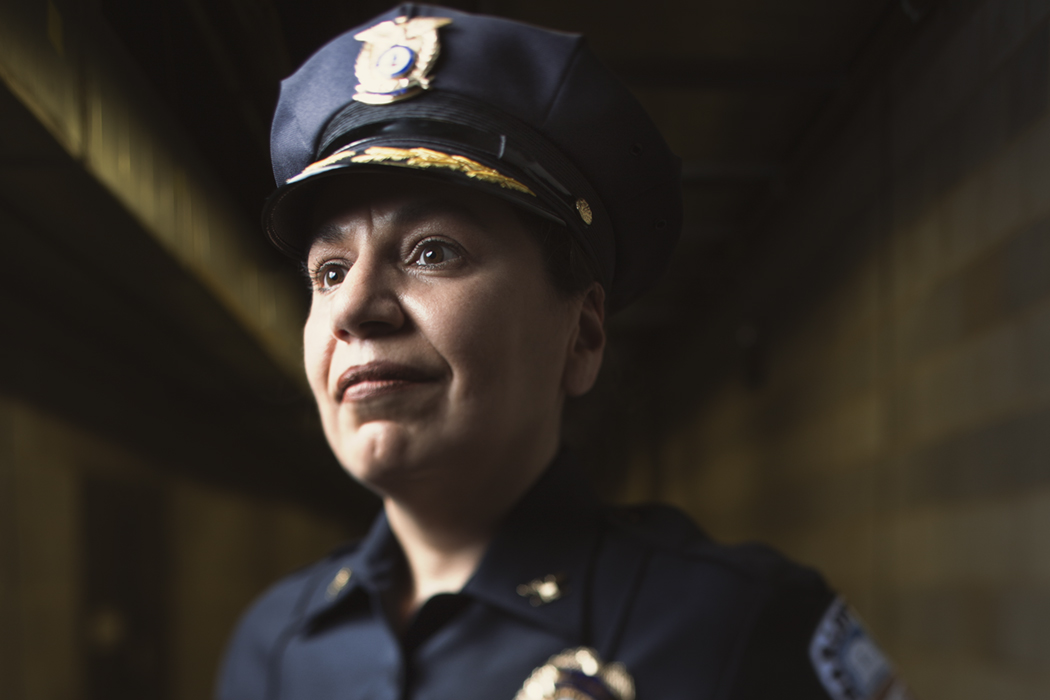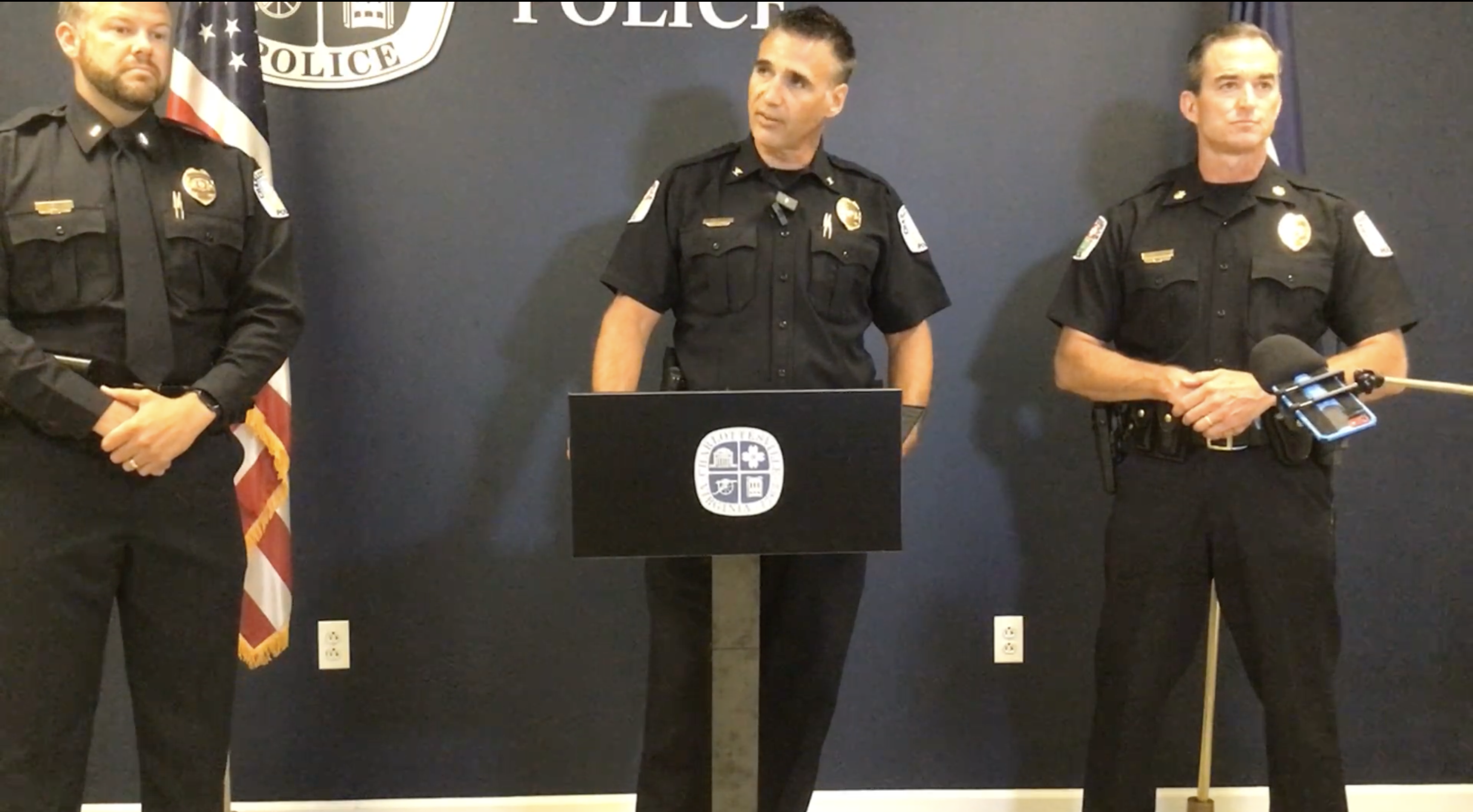“Typically, everyone just goes away. They make these agreements and people go away,” says former Charlottesville police chief RaShall Brackney. But she’s not going away.
Two months after her controversial termination, Brackney—the city’s first Black woman police chief—filed a string of formal complaints against the city, accusing government leaders of directly retaliating against her efforts to dismantle white supremacy within the police department.
In complaints submitted to CPD’s human resources department, the local Office of Human Rights, the Equal Employment Opportunity Commission, and the NAACP on November 9, Brackney claimed that city leadership defamed, harassed, and discriminated against her based on her race and sex after then-city manager Chip Boyles wrongfully terminated her on September 1. She demanded $3 million and a public apology.
Brackney gave the city until November 26 to reach a settlement with her. But since filing her complaints, she says she has only received a brief letter from the city’s attorney, David Corrigan of Harman Claytor Corrigan & Wellman. According to the civil litigation firm’s website, Corrigan specializes in representing state and local governments, and has handled numerous cases of employment discrimination.
“It literally was just a letter notifying us who their attorneys were—not anything substantive,” says Brackney. According to Brackney’s attorney Charles Tucker, the city government has yet to alert Brackney when, or if, it plans to formally respond to her complaints.
“Even when the entire world was watching, and it’s been on display what they’ve done, they just are so comfortable in the way in which they go about their work,” Brackney says. “They don’t think that they have to respond because they’ve not had anyone challenge them to this degree.”
Since her departure, “most of everything” has fallen apart at CPD, claims Brackney. Some officers have stopped coming into work, and several have completely left the department.
“They just show up when they want to show up,” says the former chief. “They’ve found officers sleeping on duty and instead of discipline, they’ve sent them home and said, ‘You know what, we’ll let them do work from home.’”
In September and October, CPD did not post information about investigative detentions and encounters on its website—a practice Brackney implemented during her tenure in an effort to improve the department’s transparency. The statistics were not updated until after Brackney sent an email to City Council last month about the department’s rollback on her reforms, she says. And though the former chief dismantled the department’s SWAT team after uncovering severe misconduct in August, she claims the team has been secretly reassembling since her termination, and will be fully funded in the FY23 CPD budget.
Brackney emphasizes that officer pushback against systemic reforms is not unique to Charlottesville.
“I am now hearing people say that this is a system that is so failed, it can’t be reformed, it can’t be reimagined. It needs to be demolished—start all over,” says Brackney. “There are really good individuals who work in these systems, but they’ve also been indoctrinated and socialized into [them].”
The former chief says Charlottesville has been “complicit” in the deteriorating situation in the department. She claims the community did not support her efforts to reform the department until after she was terminated.
“I’ve been screaming from the rooftops this is the work I’ve been doing, but no one cared,” she says. “[Local media] oftentimes were very comfortable attacking me because they could.”
Though Tucker declines to detail the exact steps Brackney’s legal team will take next, he says they have the right to file a “host of claims” in federal court.
“There’s a defamation claim that we could make…to go along with her constitutional claims that allege the city not only disparately treated her but also retaliated against her,” says Tucker. “We are putting forth our efforts to get her case ready to go.”
Due to the conflict of interest, the city’s Office of Human Rights must delegate a separate authority to investigate Brackney’s complaints on behalf of the EEOC, explains Tucker. The office has about two months left to complete its investigation.
“From their findings or lack thereof, chief Brackney would be entitled to receive a right-to-sue letter, which would give her the opportunity to then file her claims in federal court,” says Tucker.
Brackney also plans to file a complaint with the Virginia attorney general’s office requesting an investigation into the city’s pattern of discrimination.
“If you look across the board of qualified Black candidates who’ve been brought into Charlottesville…they have been forced out,” she says. One high-profile example is former city manager Tarron Richardson, who is also suing the city regarding the way his departure was handled last September.
Still, Brackney and Tucker urge the city to respond to the former chief’s claims, and save taxpayers the hefty costs of litigation and attorney fees.
“I don’t think it’s in anybody’s best interest if we get into a fight,” says Tucker. “But we’re certainly prepared to litigate the fight to the fullest extent that the law allows.”
“The city knows what we have,” adds Brackney. “If they don’t know the full extent of what we have, shame on them.”





